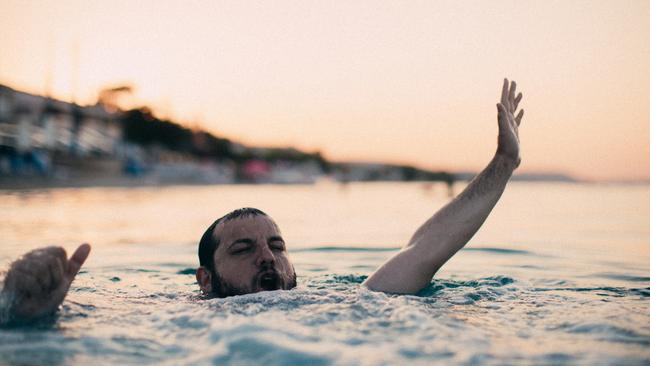Tragic summer shows Australia no longer a nation of swimmers
A shock statistic on the back of a tragic Christmas period that saw 20 drownings suggests Australia is losing its “nation of swimmers” tag.

Victoria
Don't miss out on the headlines from Victoria. Followed categories will be added to My News.
Research from the Royal Life Saving Society has revealed as many as one in four Australians are weak swimmers or cannot swim at all.
The Christmas and New Year period saw at least 20 people lose their lives in the water alongside a 23 per cent spike in the nation’s drowning deaths.
Since the beginning of summer, 43 people have drowned with that figure sadly anticipated to grow.
CEO of Royal Life Saving Society Australia Justin Scarr said the importance of the water safety message was critical at this point of the summer season.
“Few people appreciate how dangerous our inland waterways can be, particularly those who lack swimming skills and knowledge of local water conditions,” Mr Scarr said.
He said a major factor in drownings was poor swimming skills – a foible not limited to children.
a startling 35 per cent of adults born outside of Australia classify themselves as weak or non-swimmers.
Most cited a fear of the water as what prevented them from swimming, while a small proportion said it was because their parents could not swim either.
“The calm appearance can often hide steep drop offs, currents and debris, and create a false sense of safety relative to beaches,” Mr Scarr explained.
Royal Life Saving Society further estimates that as many as 40 per cent of children complete primary school without passing basic water safety benchmarks like floating for two minutes.
“We may be at risk of losing our ‘nation of swimmers’ tag,” Mr Scarr said.
“The result of our research is staggering and sadly, we may be seeing that in the increase in drowning incidents over the summer.”
Minister for Sport Richard Colbeck said the Australian Government was working harder than ever to ensure people of all ages and backgrounds understood the potential dangers of the water.
“We remain committed to ensuring Australians are equipped with the skills and understanding they need to prevent another holiday tragedy,” Mr Colbeck said.
As part of the latest investment into AUSTSWIM programs announced last month, swim teachers are being encouraged to return to the pool to strengthen skills and save lives.
The program aims to re-engage swimming teachers who have left the industry and support them to return to the water.
“It really is a case of knowing your limitations, being aware of the environment and avoiding getting out of your depth,” Mr Scarr said.




